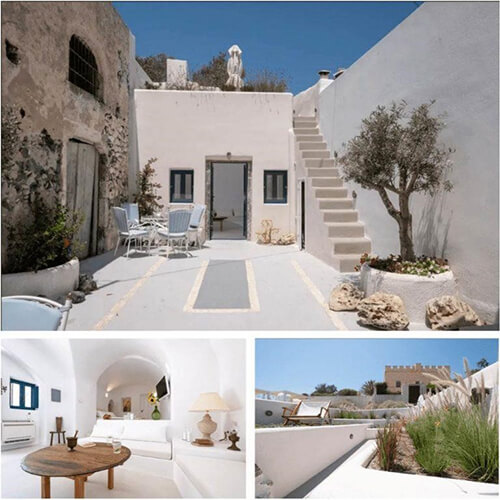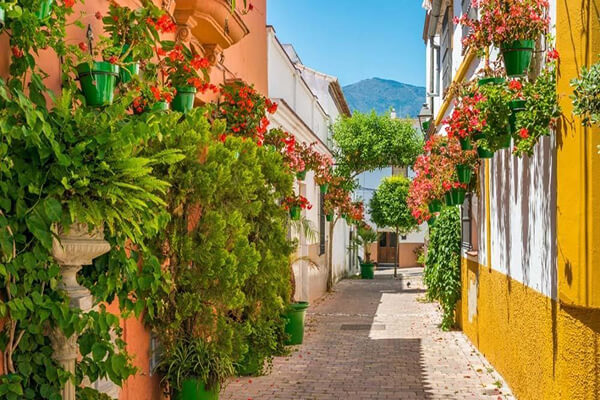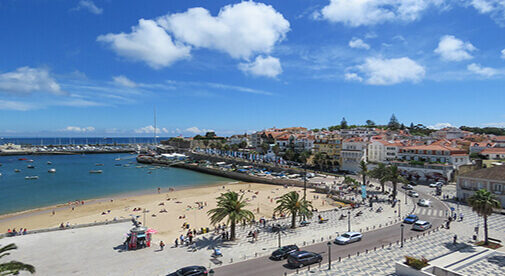As a reader of this e-letter you’ll know that when you invest in real estate overseas, you open yourself to bigger opportunities. Much bigger potential gains. It diversifies your portfolio. And gives you the ability to travel and stay in a place you love…
It can also be your path to a second passport, and a way to ensure that you’ll always be free to move around the world at your own leisure.
I have two passports. One by birth, one through my parent’s country of birth. And I’ve taken residency in three additional countries.
This gives me a lot of freedom. It allows me to live a truly internationalized life. I can pretty much go wherever I want, always living in perfect spring-like weather, never turning on the heating and cooling. I can cut my tax bill by an eye-watering amount…get access to public healthcare…and pick a shorter line at the airport.
It’s an international lifestyle that works for me. But it took years to get to this point. It’s taken luck, a lot of form filling, and hundreds of hours of just figuring it all out.
These days, there are many routes to residency in countries all over the world. They can often come at a high cost. Some come with a requirement to invest in government bonds or preapproved funds—good luck when it comes time to cash out.
I’m a real estate investor, so my focus is on residency through buying real estate…
Fortunately, there are many great options for doing this, at a lot of different price points, in destinations all over the world.
Here, I’m going to focus on places in Europe where we can secure residency with real estate that truly stacks up as a great investment.
The Best Golden Visa in Europe
Last summer, I took my most extensive scouting trip of Portugal yet. One of the aims of that trip was to look for a place to buy for myself in the Algarve (if you’re a regular reader you’ll know that in the end, I bought 2 properties…one in the Algarve and one on the country’s Silver Coast).
To take advantage of Portugal’s NHR (Non-Habitual Residents) program, which I have, you need to establish a residency in Portugal.
For a year, I had been renting a home but decided it was time to buy. NHR enables anyone who becomes a tax resident in Portugal to receive qualifying income tax-free. (U.S. citizens still have worldwide tax obligations, but may benefits from NHR if they meet the requirements of Foreign Earned Income Exclusion—you will need to get your own professional advice).
Portugal also has the best Golden Visa program in Europe. Not only does it offer some of the lowest buys in prices for residency through real estate investment on the continent, with the right property in Portugal, you can lock in some stunning gains too.

More on that in a moment. First, let’s look at how to qualify for Portugal’s Golden Visa…
Like I say, Portugal has some of the most affordable options for residency through real estate investment in Europe. Depending on the location and the type of property you choose, you can pay as low as €250,000, all the way up to €500,000.
In return, investors get residence in Portugal with the right to free travel in the 26 countries that make up Europe’s Schengen Zone. (The Schengen Zone is an area within Europe made up of 26 European countries that abolished their internal borders, for the free and unrestricted movement of people.) It entitles a spouse, dependent children, and dependent parents to residency too.
The Golden Visa can lead to permanent residence after five years and, eventually, citizenship and a second passport.
The low-stay requirement means that you only have to spend seven days a year in Portugal, then no less than 14 days each subsequent two-year period. This is important if you plan to seek citizenship.
For Portugal’s Golden Visa, there are five different price points to choose from:
- For a new property, the minimum investment is €500,000.
- However, if you buy a new property in a low-density area, it’s reduced to €400,000.
- For a property that’s older than 30 years and in an urban regeneration area, the minimum value is €350,000.
- For a property that’s older than 30 years and in a low-density location, that minimum is €280,000.
- And finally, if you’re preserving property considered to be national heritage, the minimum is reduced to €250,000.
The investment can also be made up of one or multiple properties, so long as the minimum threshold is reached.
With the right investment in the right place, you could lock in your Golden Visa along with a property that can make some serious rental gains. (The residency program has no restrictions on renting your property out.)
Until the end of the year, much of the Algarve qualifies as a “low-density area.” (See the note below for an update on the Golden Visa.) This means, for a new property, you’d only need to meet the €400,000 minimum. Tap into the Algarve’s red-hot rental market and you can make a killing…
A contact of mine there bought a home for €420,000 and spent the summer renting it out for a whopping €6,000 a week while he went sailing around Greece on a yacht.
Last year I recommended condos in buzzing beach town of Lagos to members of my Real Estate Trend Alert group. I got word recently of a RETA member who got a soft offer on their condo in that community that could hand them €160,000 in profits.
Next week, I’ll be sharing more about the Algarve and the most recent opportunities I found when I spent some time there last week…stay tuned.
Note: Earlier this year, the Portuguese government made changes to the Golden Visa Program which will come into effect on January 1st, 2022. The big change is that although the minimum amounts for investing in real estate will remain the same, to qualify for the visa, you must buy in the country’s interior or the autonomous regions of the Azores and Madeira. That means that if you buy in Lisbon, Porto, or the Algarve, you will not qualify for the Golden Visa. So now is the time to start looking for that money-making home in Portugal if you want to avail of the Golden Visa.
The Cheapest Golden Visa in Europe
You’ll find some similarities between Portugal’s Golden Visa and that of Greece. For instance, each of them allows you to travel within Europe’s Schengen Zone countries without the need for an additional visa. But they also diverge in some significant ways.
The biggest drawback to Greece’s Golden Visa is that if you’re looking for a path to European citizenship, you’re required to live in Greece for 183 days a year for seven years.
However, if you’re not seeking citizenship, Greece is a great option. With a minimum real estate investment of just €250,000 it’s the lowest investment threshold of any of Europe’s Golden Visas. Plus, there are no restrictions on what kind of real estate you can buy.
Unlike its citizenship requirements, if it’s just residency you want, there is no minimum number of days you’re required to be there. Another huge benefit of Greece’s program is that it offers much more flexible terms for family. Once you meet the minimum investment requirements, your spouse, all children under the age of 21, as well as parents and parents-in-law can be added to the application.
While this residency does restrict you from working in Greece, you are still free to rent out your property as you please.

I’ve scouted real estate in Greece on several occasions and traveled through the islands. I don’t consider it a particularly fertile hunting ground for real estate investors. The economy is so weak, rental income and capital gains are a very easy target for an insatiable taxman.
Having said that, the €250,000+ price range would get you a stunning property, definitely an ocean view and your pick of many restored village homes or modern apartments. And you have 227 inhabited islands to choose from, as well as the mainland.
You can buy this home on the island of Santorini for just €260,000. Recently renovated, it features a terrace with sea and village views and is a quick walk to the cliffs that overlook the famed caldera and Fira town, the island’s capital.
This is the quintessential Greeks isles home. Plus, the idyllic Aegean island of Santorini has an international airport, so you have easy access to the rest of Europe.
Earn Income with Spain’s Golden Visa
Following on from Portugal’s early success with its Golden Visa, Greece and Spain both launched theirs a year later in 2013. But while Greece offered a more competitive investment threshold, Spain kept the bar high, setting a minimum investment to €500,000.
Along with the right to live and work in Spain, its Golden Visa offers visa-free travel within the European Schengen Area. Like Portugal, this visa allows a spouse, dependent children, and dependent parents to be included in the application. And much like Greece, there’s no requirement to reside in Spain.
Until very recently, Spain has the most difficult path to citizenship. It requires 10 years of residency, with the majority of each year spent in Spain. But revisions to legislation has changed the restriction to no more than six consecutive months outside of Spain. This means that you only need to visit Spain about twice a year.
I would generally only recommend this visa if you wanted Spanish residency specifically. Portugal and Greece both offer more flexibility.
But there is a possible income play here…
Spain’s Costa del Sol is one of the strongest real estate markets in Europe.

It’s a stunning stretch of coast with glorious beaches, ancient towns and cities, incredible food, marinas, shopping, entertainment, and world-class golf courses.
A prospect that recently crossed my desk is a contemporary three-bedroom villa with a private pool and close to two 18-hole golf courses going for €525,000. It’s a five-minute drive to the beach and a €9 taxi-ride from the town of Estepona, one of the prettiest towns on the Costa del Sol.
I figure a home like this would generate $50,000 a year in rental income in the peak season alone…leaving lots of time for personal use.
This isn’t a double-your-money grade investment, but if your plan is to have a Spanish base that you can easily rent out while you travel Europe, it’s worth looking into.
The Quickest (But Most Expensive) Road to European Citizenship
The Golden Visa programs of Cyprus and Malta are the quickest options for gaining E.U. citizenship by purchasing real estate.
However, these are expensive. These programs are aimed at high net worth individuals who want to exchange cash for a passport as quickly as possible. And recently, they’ve come under heavy criticism from the European Commission.
In Cyprus, you’re eligible for citizenship with a spend of €2.2 million. That’s a real estate purchase worth at least €2 million. And on top of that you’re obliged to make a €100,000 donation to the Cypriot Government Research and Development Fund and another €100,000 donation to the Cypriot Land Development Organisation (that’s money you won’t see again).
In Malta the cost is lower, but most of it is going towards a substantial donation. Known as the Malta Individual Investor Programme (MIIP), investors must make a minimum contribution of €650,000 to the national development fund, invest €150,000 in government approved financial instruments, and make a real estate purchase of €350,000 or more. That’s a total of €1.15 million.
Citizenship by Descent

Before you commit to any residency program, you should first see if you qualify for full-fledged citizenship.
“Citizenship by Descent” is when your ancestors qualify you for a second citizenship and a passport as a birthright.
A survey conducted by the U.S. Census Bureau found that 83% of respondents listed at least one foreign ancestry. If you can prove your ancestry, and you can trace it to your ancestral country within a few generations, you could find a path to citizenship, regardless of whether you’ve ever lived there.
This is particularly useful if you have direct European ancestry, as having a passport from any E.U. country will also grant you E.U. citizenship, meaning you can live, work, and travel unrestricted throughout the E.U.
And, fortunately, some of the best Citizenship by Descent programs are from countries with a large diaspora in the U.S. These include Ireland, Italy, Spain, Poland, Hungary, and Greece.
If you think this a route to citizenship that you might qualify for, I highly recommend you follow up on it before applying for a Golden Visa.
You need to have the paperwork to prove your ancestry, and the requirements are different from country to country.
For instance, in many countries, you can only qualify for Citizenship by Descent if you have a parent who was a citizen of that country—and in some cases, they have to be born in that country too. Germany, France, the U.K., Croatia, and the Scandinavian countries are a few examples of places that have this parents-only rule. (Although, even with these countries you can find exceptions.)
However, there are countries that will grant citizenship based on a grandparent’s heritage, or in some cases even a great-grandparent’s heritage.
You can attain Irish or Greek citizenship if one of your grandparents was born in either country, or, in the case of Ireland, they were a citizen at the time of your birth.
Spain, Czech Republic, Romania, Slovenia, and Portugal have similar rules, with varying restrictions. For instance, you can only qualify for Portuguese citizenship through a grandparent if you’re familiar with the Portuguese language and have ties to the local Portuguese community.
In Poland, Citizenship by Descent stretches to great-grandparents. However, you have to prove that they resided in Poland after 1920.
If you have Jewish heritage, you may also have additional options for Citizenship by Descent. For instance, ethnic and religious Jews—as well as their spouses and grandchildren—can gain Israeli citizenship through the country’s Law of Return. And in Germany and Austria, direct descendants of Jews who were persecuted by the Nazi regime can get citizenship.
There is no one-rule-fits-all when it comes to Citizenship by Descent, so get digging. Gather as many documents that will support your case as you possibly can. This means birth certificates, your parents’ marriage certificate, address registries, etc. Even things like your ancestor’s military documents will help build your case. The key here is to have an unbroken paper trail between you and your ancestor’s place of birth.
Get Your Free Real Estate Report Now
Sign up for our free daily Postcard e-letter and get a valuable free report on the The 5 Best Places to Buy Real Estate In 2023.
Related Articles
Finally, a Digital Nomad Visa That’s Worth It

